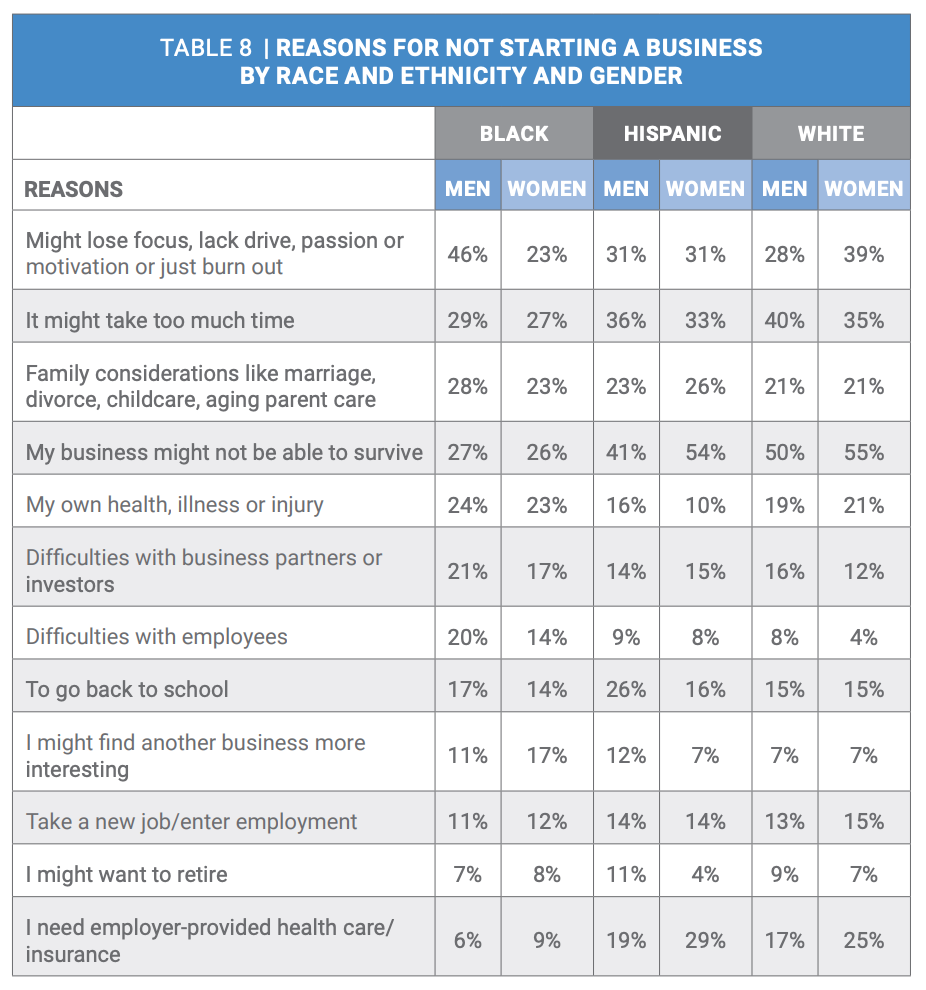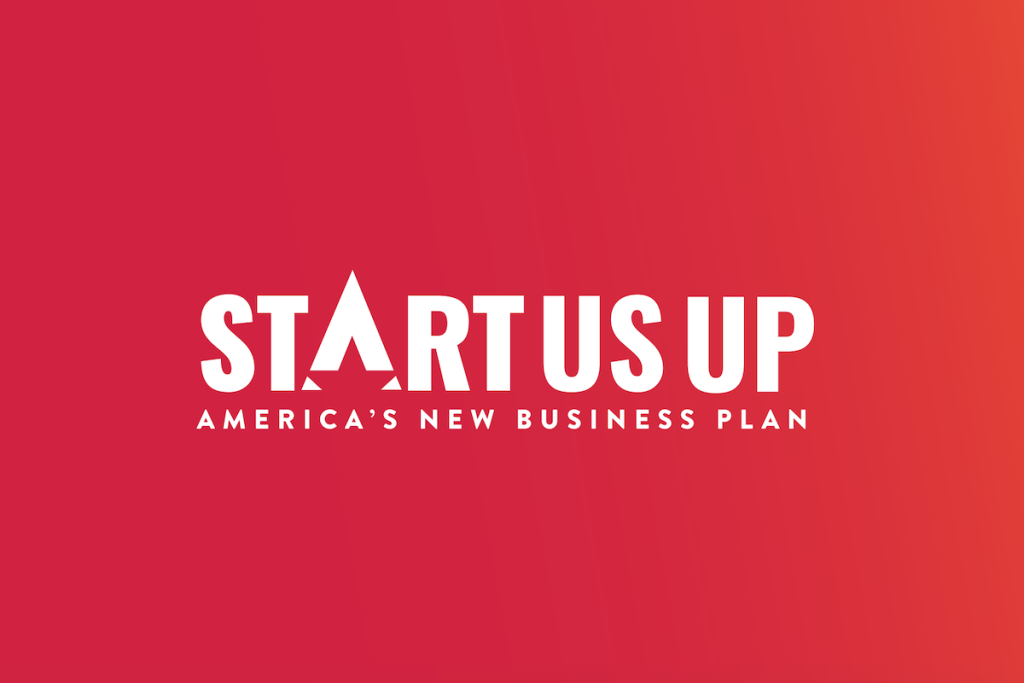America is mired in a decades-long startup slump, and though new business applications are rising in a year marked by immense job loss, the pandemic has exposed the weak foundation contributing to the status quo.
Despite the potential for entrepreneurs to supercharge both national and local economies, nearly 6% of the U.S. population has consciously abandoned or paused their pursuit of starting a business for a variety of reasons.
New research from the Kauffman Foundation seeks to answer the question of who doesn’t start a business in America? And perhaps more importantly, it also sheds light on the why.
Consistent with research into the barriers faced by business owners of diverse backgrounds, institutional reasons are disproportionately cited by discouraged “wantrapreneurs” of color.
While white respondents were more likely than people of color to cite fear of survival as a reason for leaving the entrepreneurial journey, responses from Black and Hispanic men and women reveal systemic challenges that seemingly weigh more heavily on communities of color, compared to their White counterparts. These include:
- Hiring
- Funding
- Family considerations, including childcare
- Education
- Health (most pronounced with Black men)
- Insurance (most pronounced with Hispanic women)

Understanding how these fit into the larger conversation around equitable access is critical, as the research further underscores a system that not only disproportionately impedes Black- and Hispanic-owned businesses, but also poses undue barriers to entry.
Ultimately, it demonstrates the need for systems-level change, including action on issues that may at first seem only tangentially related to entrepreneurship, but are as fundamental as funding.
These include health care reform, such as facilitating the development of a system of portable benefits for entrepreneurship hopefuls, thereby discouraging the job lock cited overwhelmingly by Hispanic respondents. Similar attention to childcare is necessary, especially in the age of COVID-19.
It also includes workforce training improvements to help would-be entrepreneurs access networks, rather than just skills.
And of course, it requires a holistic approach to capital — not only creating new funding streams, but ensuring all communities have access to apply for and secure the capital they need, an issue that was at the heart of the COVID-19 Paycheck Protection Program (PPP).
Inequity affects entrepreneurship at all stages, even before a new business application is filed. As equity is brought to the forefront of conversation around new and small businesses, it’s critical policymakers don’t leave out those who never got a foot in the door.

